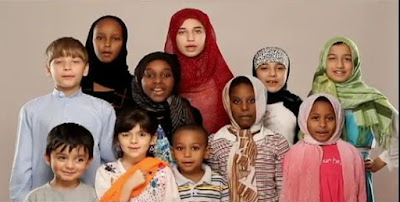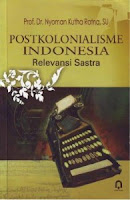Studying Islam in Diversity
 |
| Image: https://lstcccme.files.wordpress.com |
The fact that Indonesia is a nation with diversity is something no one can deny. The diversity of Indonesia is not only reflected on its many islands bound together as a nation, but also on the variety of the skin colors, languages, ethnics, religions, and cultures.
However, the problem is not on the diverse nation, but it is more to the way we see and manage the diversity. The founders of Indonesia are aware of this diversity matter. When they built this country, they looked for a foundation to unify the diversity. History records two different responses to the matter. One group believe that we can unite on the ‘nationality’ base and the other say that we can unite on the ‘religion’ base, that is Islam as the religion adhered by the majority of Indonesian.
The history of the nation has a long record of the on going dialects between the nationality concept on one side and the religion concept on the other side. The arguments sometimes even end with a violent behavior, but sometimes a synthesis and integrity can take place peacefully.
Some of the controversial problems brought up by Mujiburrahman in the book of ‘Mengindonesia Islam’ are pluralism, the State versus a Pancasilaic state, and issues on religious freedom and democracy. Concerning with after MUI declared a fatwa in 2005 stating that concept of pluralism is against the Islamic concept. MUI defines pluralism as a philosophy considers all religions the same and that they can bring salvation.
In many discussions of this problem, Muji implicitly refuses MUI’s view. In reality, there are intellectuals with a theology of pluralism view, as defined by MUI. However, for Muji the debates on theology will waste energy because it will be hard to achieve an agreement on the matter. The essential matter lies on the social level. Therefore Muji proposes for pluralism to be understood as a positive attitude toward the diversity and a serious effort to manage the diversity peacefully and justly. Thus, the attitude to accept and to cooperate with each other can be developed without sacrificing the theological claim from each religion.
Next, concerning with the problem of the Islamic state versus the secular one, based on the social-historic analysis, expresses that the agreement made by the father of this nation, that Indonesia is neither an Islamic state nor a secular one as it is the first point of Pancasila (the five bases)-Ketuhanan Yang Maha Esa (the principle of A Single God)-is a political compromise we need in holding the unified state of the Republic of Indonesia. According to Muji no party will win the on going debate on the Islamic concept and secular concept politically.
On the other side, the moral value of Pancasila, such as humanism and justice can be used as the pedestal to integrate the Islamic values into the nationality ones. Therefore the realistic way is to accept and improve the compromise to solve the problems we face.
As an illustration of the possibilities to develop the agreement is a compromise in formulating the policies of religion freedom issues. To get the absolute religion freedom, perhaps only the secular countries can make it happen, but Indonesia in neither a secular nor an Islamic state. In Indonesia, there is a policy on recognized and unrecognized religions that sometimes is against the concept of religion freedom.
Is there a way out to compromise these? Based on the government official text in 1965, Muji proposes some question, such as; can the government give financial fund and protection to the recognized religions, and at some time gives the protection to unrecognized religions or believes?
Muji also asks the same question related to marriage issues. The Law of Marriage in 1974 formulates that a marriage is only religion based legal. Hence the Moslems can get married based on the Islamic law and is legalized by the state. However, a problem arises for only a marriage based on religion is recognized as legal. The clergies consider inter-religion marriage is illegal. Thus, such a marriage is difficult to legalize. Here, Muji asks a question; can a marriage based on the unrecognized religion and marriage between two religions be legalized in the Office of Civil Administrative Affair?
There are several efforts that have been tried by the intellectuals to build cooperation between religions. We need to study the intellectuals of Sunni’s tried to find a meeting point to respond the theological contradictions within the followers of Islam themselves in the middle of the century. Here he takes us to respond the discourses on social religion conflicts to get the benefit in building the togetherness now and in the future. Wallahu’alam


Komentar